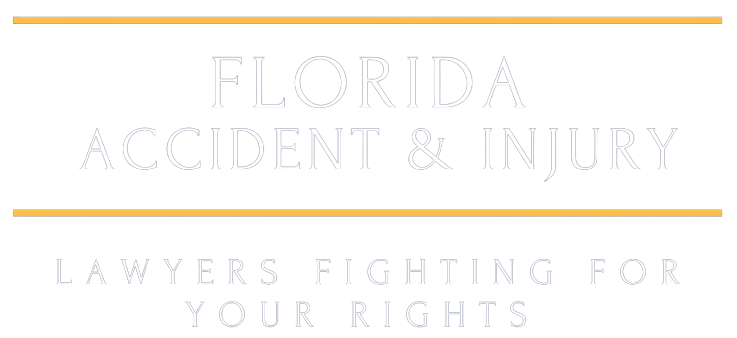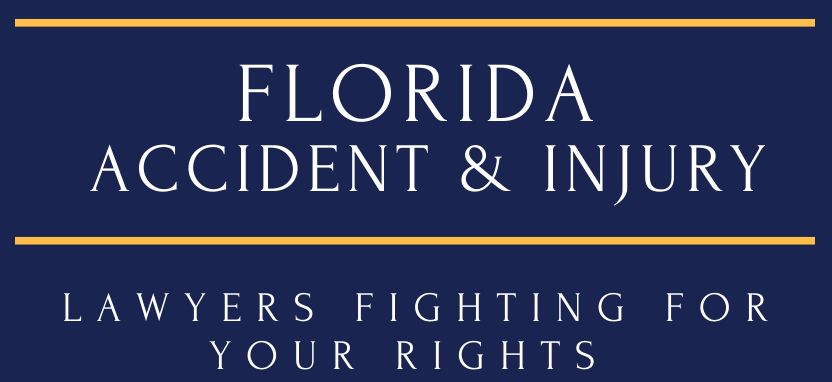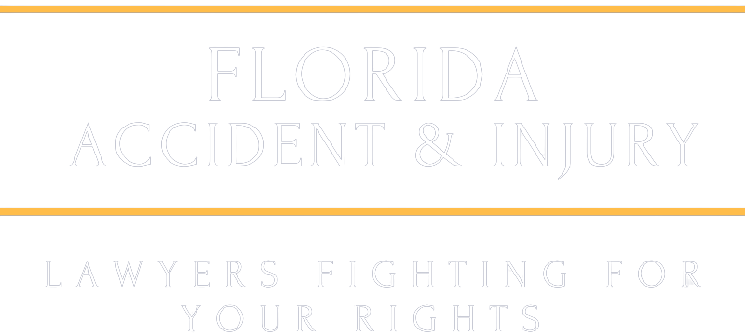Accidents involving automobiles are among the most common causes of personal injury. The majority are minor collisions, but a frightening percentage result in serious injury, long-term disability, or even mortality.
Pain and distress, mental anguish, missed pay, medical bills, and property damage are all common consequences of these traumatic events, all of which may be compensated for financially.
The steps you take immediately after an accident and in the following days can significantly impact your potential to receive compensation for your losses. It’s easy to become overwhelmed when trying to figure out what to do next, especially for those in agony because of their injuries and those worried about how they will pay for the bills coming their way.
The great news is that if the fault of another party resulted in your road accident, you will not be held responsible for these expenses. A car accident attorney can clarify your legal rights as well as your choices for recouping your damages.
At our Florida law firm, we don’t back down from challenging situations. We’re here to assist you with your case.
Florida Car Accident Lawyer | What To Do After a Car Accident in Florida
Even the best-prepared drivers might be caught off guard and bewildered by a vehicle accident. Amid the chaos, you might overlook the most fundamental steps to be taken following a car accident.
If you are not seriously injured and are capable of handling all that must be done at the scene, follow these steps immediately after an automobile accident:
- Contact the authorities in your area.
- Take photos and videos of the accident scene to be used as evidence later.
- Disclose your insurance details to the other driver(s).
- See a doctor to treat any injuries.
If possible, speak with eyewitnesses about what they saw, then get their contact details. This is so that your attorney can talk with them later regarding what transpired and use their statements to help build your compensation claim.
Contact your insurance provider and inform them about the incident’s relevant information. Cooperate and tell the truth or they may reject your claim.
You might also want to contact an attorney, particularly if you were injured in a vehicle accident. Some law firms that specialize in personal injury cases provide initial consultations for free.
How Is Fault Determined in a Car Accident?
Following a car accident, there are several options for determining fault. You can use evidence like traffic or surveillance video footage to help you. Your own photos and videos of the accident site and your injuries, as well as your medical records, can help establish liability. Statements from eyewitnesses are also quite helpful.
Before the repair and reimbursement process, insurance companies must first decide which person is at fault for the collision. Establishing who is at fault is critical because the insurance company of the at-fault party will be held liable for property damage and medical expenses incurred by the injured party due to the accident. Insurance companies use the legal definition of negligence in Florida to assess who is at fault.
There are instances when it’s very evident who’s at fault. For example, a driver may break the speed limit and collide with another car. In such cases, proving negligence on the part of the driver who broke the law is frequently straightforward. It could be more challenging in other instances where there could be numerous influencing factors. Examples would be two cars crashing when merging into one lane or multiple vehicles piling up in a collision.
However, if you or a loved one is injured in an accident, you should not immediately presume that you are not entitled to compensation. Instead, contact our Florida Car Accident Lawyers. Allow us to hear you out, do an investigation, and determine how we can safeguard your rights and secure the recompense you deserve.
Types and Causes of Car Accidents
There are various kinds of vehicle accidents — and understanding more about the type of accident that has affected you or a loved one may be beneficial. You can learn more about what might have led to the accident, who should be held liable, and how much you may be able to collect for your losses.
Types of Car Accidents
Head-On Collision
When the front end of one car crashes with the front of another, this is referred to as a head-on collision. Although head-on collisions make up a small percentage of all accidents in the United States, casualties are disproportionately high. Head-on collisions are dangerous because of the high speeds involved. When two cars meet, the force of the crash is amplified because of the cars’ forward motion.
Vehicle Rollover
When a car flips over, falls on its roof, or tumbles many times, the passengers may be thrown out. There is almost no time to respond in these scenarios, which usually results in devastating injuries and even death.
T-Bone Car Accident
When a car collides head-on into the side of another, it’s known as a T-Bone collision and is extremely dangerous. T-bone collisions are most often experienced by the car’s driver, and they can result in fractured bones, a head injury, and even death.
Multiple Vehicle Collision
A multiple-vehicle collision is yet another type of catastrophic traffic disaster. In this type of car collision, three or more automobiles are involved in a sequence of events that began with a single incident. These fatal crashes can range in severity, causing chaos, several injuries, and even fatalities.
Sideswipe Collision
When the side of a car collides with the side of another, it’s called a sideswipe accident. This usually happens when a vehicle wanders or swerves into another lane or when a driver changes lanes without checking to see if the lane they are moving to is clear before making the switch.
Single Car Accident
Although a single-car accident involves only one vehicle, this does not automatically imply that the driver is to blame. This usually happens when a driver swerves to avoid striking something, such as an animal, and collides with a tree or a telephone pole instead.
Causes of Car Accidents
Distracted Driving
Distracted driving is among the most common causes of automobile accidents. It’s a common misconception that the brain is capable of multitasking. As such, it’s impossible for a driver’s brain to stay focused on the road ahead when they are texting, speaking on the phone, or eating while driving.
Drunk Driving
Every day, drunk driving causes the deaths of 29 people on average. When under the influence of alcohol, most of the skills required for safe driving are compromised. This involves the capacity to track moving objects, efficiently steer and brake, react accordingly in emergency driving scenarios, and focus.
Reckless Driving
Running a red light, speeding, tailgating, weaving, failing to yield, racing, and other irresponsible driving behaviors are examples of reckless driving. Reckless driving endangers other motorists and is a leading cause of automobile accidents. Around 40% of car accidents happen at intersections, and the most common reason is running red lights or failing to yield at a stop sign. Putting your own and others’ lives and safety in jeopardy to save a few minutes isn’t worth it.
Fatigue
Rest is essential for the body’s alertness and reaction time so that an accident can be avoided. As such, sleep-deprived drivers are more likely to be involved in collisions. Accidents caused by drowsy driving are both prevalent and deadly. Long-haul drivers and shift workers are particularly vulnerable.
Confusion
Drivers who are disoriented or have missed a turn are more likely to commit mistakes. These include switching lanes without checking to see if the road they’re shifting to is clear, as well as heading the wrong way into a one-way street or a freeway ramp.
Inclement Weather
Wet, snowy, or icy roads reduce tire traction, causing cars to skid off the road or collide with other structures or vehicles. Weather-related accidents may also be influenced by fog, wind speed, and water levels.
Road Conditions
Poorly maintained roads increase the likelihood of a burst tire and impair a driver’s ability to brake effectively.
Vehicle Problems
Cars are made up of numerous components that work together to keep them reliable and safe. However, with so many parts, things can go awry and break down.
Common Injuries Associated With Car Accidents
According to the National Highway Traffic Safety Administration, vehicle accidents are a leading cause of bodily injury across all age categories, with an estimated 2.6 million injuries occurring each year. Many different injuries can happen in an accident: from minor scratches, bruising, and fractured bones to devastating injuries to the brain or spine.
Traumatic Brain Injuries (TBI)
Traumatic brain injury (TBI) is most commonly caused by car accidents. This happens when a blow to the head or puncture to the skull damages the brain. TBI claims the lives of about 50,000 individuals each year, and another 80,000 to 90,000 become permanently disabled as a result.
Spinal Cord Injuries and Paralysis
Spinal cord injuries can be permanently disabling because of the force and impact of a collision. Partial or complete paralysis can be the effect of spinal cord trauma.
Back Injuries
Back injuries are typical of car accidents since the human spine was not meant to withstand such force. After an accident, back injuries can take a while to manifest. Nevertheless, a significant back injury can cause severe and long-term pain and impairment.
Burns
Burns can occur if a car catches fire after a collision or if skin comes into touch with heated substances, surfaces, air, or chemicals. Burns that are incredibly severe might need surgery and skin grafts.
Internal Injuries
Internal organ injury can occur when the body collides with an object or is struck by flying debris. Internal bleeding caused by this type of damage needs immediate medical attention.
Fractures and Broken Bones
Car accidents frequently result in broken legs, arms, fingers, and ribs. A shattered pelvis is a common injury among vehicle accident victims. The severity of a break can range from minor breaks that need a cast to catastrophic compound fractures that may involve surgery.
Amputated Limbs
In an extreme collision, a person’s limbs can be crushed or ripped off by sharp metal. The limb may potentially be amputated during medical treatment if it is too broken to rehabilitate.
Neck Injuries and Whiplash
Whiplash is a frequent term for injuries to the neck’s muscles, ligaments, and tendons that can occur in a car collision. If you’re not wearing a seatbelt, even traveling at 15 mph might result in whiplash. Car crashes can also lead to serious disk injuries and cervical dislocations.
Lacerations, Abrasions, and Bruises
Lacerations can be caused by shattered glass, shredded sheet metal, or flying debris. It’s possible that friction from dragging or skidding on asphalt or concrete will also lead to abrasions. Bruises are the result of the body colliding with another object.
Soft Tissue Injuries
Car crashes frequently result in sprains, strains, bruises, and other injuries to muscles, tendons, and ligaments. This sort of trauma can be excruciatingly painful and have a lengthy recovery time.
Post-Traumatic Stress Disorder (PTSD)
Physical injuries aren’t the only type of injuries people can sustain from a car collision. Because of the trauma of a car accident, you can experience mental and emotional issues. There is a possibility that you have PTSD, and tasks that were once ordinary may now be scary or even overwhelming. Following a car accident, you may be eligible to seek compensation for your mental health care and emotional distress.
Call Our Florida Car Accident Lawyers After Your Car Collision
In most cases, a car collision happens in a matter of moments. However, the long-term effects of car accident injuries can be severe.
Speak with Florida car accident lawyers about your case to see if you are eligible for compensation to help recover the cost of your injuries.
If another driver’s negligence caused your accident and injuries, our firm can meticulously examine the evidence and facts and work with authorities to prove it. Furthermore, we consult with medical professionals and financial advisors to determine the full degree of your injuries and their total costs both at present and in the future.
Our mission is to achieve just compensation for vehicle accident victims by negotiation or, if needed, litigation. Contact our Car Accident Law Firm today.



